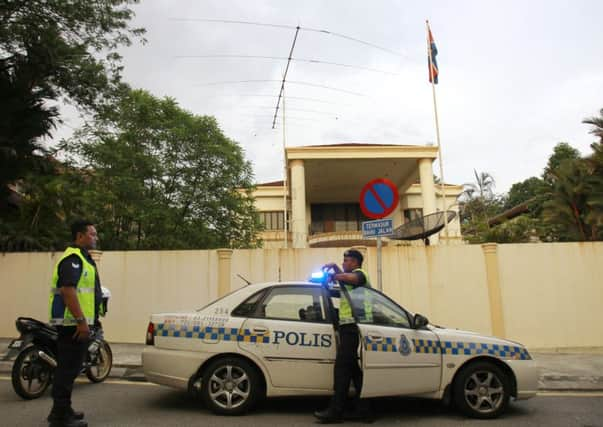Leader comment: World will have to deal with North Korean threat


Kim Jong-nam, a critic of the North Korean regime, was attacked at Kuala Lumpur airport in Malaysia. His female assailants smeared his face with VX, a deadly nerve agent which has been classified as a weapon of mass destruction by the United Nations and is outlawed by the Chemical Weapons Convention. It kills by paralysing the diaphragm, causing death by asphyxiation.
The V range of nerve agents was discovered by chemists working for ICI in 1952, who thought they might be a useful pesticide. They were soon withdrawn – but the military became aware and VX was mass-produced by some countries for chemical weapons. Iraqi leader Saddam Hussein attempted to make it for use against the Kurds, but was unable to complete its manufacture. Given its pedigree, there can be little doubt that its use by the two assassins points very strongly at the North Korean regime.
Advertisement
Hide AdAdvertisement
Hide AdThe Malaysian authorities have been unwilling to drop their suspicions for diplomatic reasons and armed police have sealed off the North Korean embassy in Kuala Lumpur because it is believed two other suspects implicated in the murder are hiding inside.
So yesterday saw the latest tit-for-tat moves in the dispute, with North Korea now banning Malaysian nationals from leaving – effectively this is the state taking hostages – and no wonder it sparked a threat as well a reciprocation. As Malaysia announced it would ban North Korean nationals from leaving the country, it added that it saw the detention of its nationals as “an abhorrent act”. Malaysian prime minister Najib Razak said he would take all steps necessary to protect the country’s citizens.
This is a significant and worrying ramping-up of a dispute in an area of the world where tensions are already running high. The South China Sea disputes involve claims among several countries: Brunei, China, Taiwan, Malaysia, Indonesia, the Philippines, and Vietnam. Tensions have heightened with China building military emplacements on some uninhabited islands in disputed waters.
Malaysia has in the past had territorial disputes with Indonesia and the Philippines. And it is an area bristling with military hardware. Malaysia was ranked 38th most powerful military nation in the world in 2014 in a Global Firepower survey, one position ahead of Norway, two rungs clear of Ethiopia, three in front of South Africa, and five ahead of Denmark. The same survey listed China as the third biggest, South Korea was at number nine closely followed by Japan at ten. And finally, there is the fact that North Korea is a nuclear power, which has recently attempted long-range missile firings.
The international community is going to have to get together and decide how it wants to face the threat from North Korea, because at some point in the not-so-distant future it will have to do so.